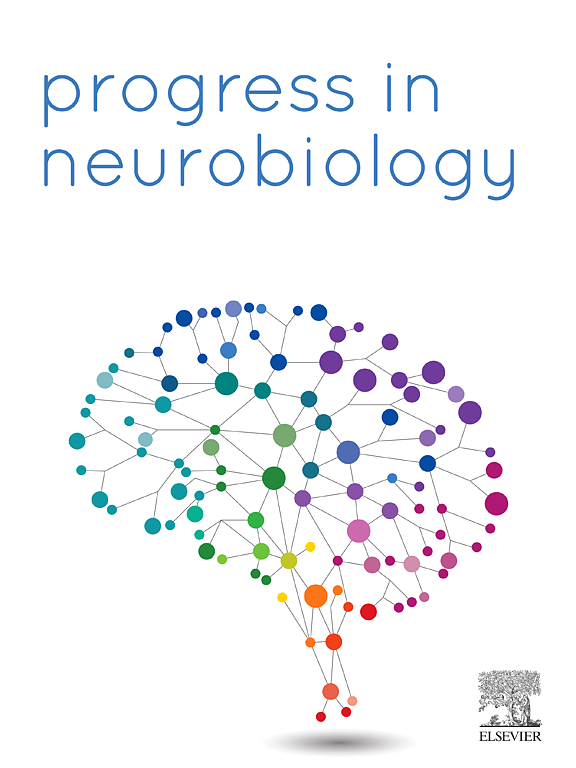应激性糖皮质激素诱导的星形胶质细胞功能改变加重重度抑郁症。
IF 6.1
2区 医学
Q1 NEUROSCIENCES
引用次数: 0
摘要
重度抑郁症(MDD)是一种流行的精神疾病,影响着全世界数百万人,是导致残疾的主要原因。慢性应激是MDD发展的关键因素,导致下丘脑-垂体-肾上腺(HPA)轴过度激活和糖皮质激素水平升高,进而影响大脑功能和结构。星形胶质细胞对维持中枢神经系统(CNS)稳态至关重要,在重度抑郁症的病理生理中起着重要作用。星形胶质细胞中糖皮质激素信号的失调有助于星形胶质细胞存活、反应性、代谢、神经营养支持、胶质递质释放和神经炎症的改变,加剧抑郁症状。这篇综述解释了探讨糖皮质激素在星形胶质细胞和随后的MDD进展中的作用的必要性。首先,我们简要探讨糖皮质激素信号通路和星形胶质细胞的多方面功能。然后,本研究讨论了慢性应激和糖皮质激素暴露诱导星形胶质细胞介导的神经退行性改变的机制,强调了靶向星形胶质细胞糖皮质激素相关信号在开发MDD治疗干预措施中的重要性。了解这些机制可能会导致开发更有效的治疗方法,旨在恢复星形胶质细胞功能和减轻MDD。本文章由计算机程序翻译,如有差异,请以英文原文为准。
Changes in astrocyte function induced by stress-induced glucocorticoid exacerbate major depressive disorder
Major depressive disorder (MDD) is a prevalent psychiatric condition that affects millions of people worldwide and is a leading cause of disability. Chronic stress is a key factor in the development of MDD, leading to hyperactivation of the hypothalamic-pituitary-adrenal (HPA) axis and elevated glucocorticoid levels, which in turn affect brain function and structure. Astrocytes, crucial for maintaining central nervous system (CNS) homeostasis, play a significant role in the pathophysiology of MDD. Dysregulation of glucocorticoid signaling in astrocytes contributes to changes in astrocyte survival, reactivity, metabolism, neurotrophic support, gliotransmitter release, and neuroinflammation, exacerbating depressive symptoms. This review explains the necessity for exploring the effects of glucocorticoid on astrocytes and subsequent MDD progression. Firstly, we briefly explore the glucocorticoid signaling and the multifaceted function of astrocytes. Then, this study discusses the mechanisms by which chronic stress and glucocorticoid exposure induce astrocyte-mediated neurodegenerative changes, highlighting the importance of targeting glucocorticoid-related signaling of astrocytes in developing therapeutic interventions for MDD. Understanding these mechanisms could lead to the development of more effective treatments aimed at restoring astrocyte function and alleviating MDD.
求助全文
通过发布文献求助,成功后即可免费获取论文全文。
去求助
来源期刊

Progress in Neurobiology
医学-神经科学
CiteScore
12.80
自引率
1.50%
发文量
107
审稿时长
33 days
期刊介绍:
Progress in Neurobiology is an international journal that publishes groundbreaking original research, comprehensive review articles and opinion pieces written by leading researchers. The journal welcomes contributions from the broad field of neuroscience that apply neurophysiological, biochemical, pharmacological, molecular biological, anatomical, computational and behavioral analyses to problems of molecular, cellular, developmental, systems, and clinical neuroscience.
 求助内容:
求助内容: 应助结果提醒方式:
应助结果提醒方式:


